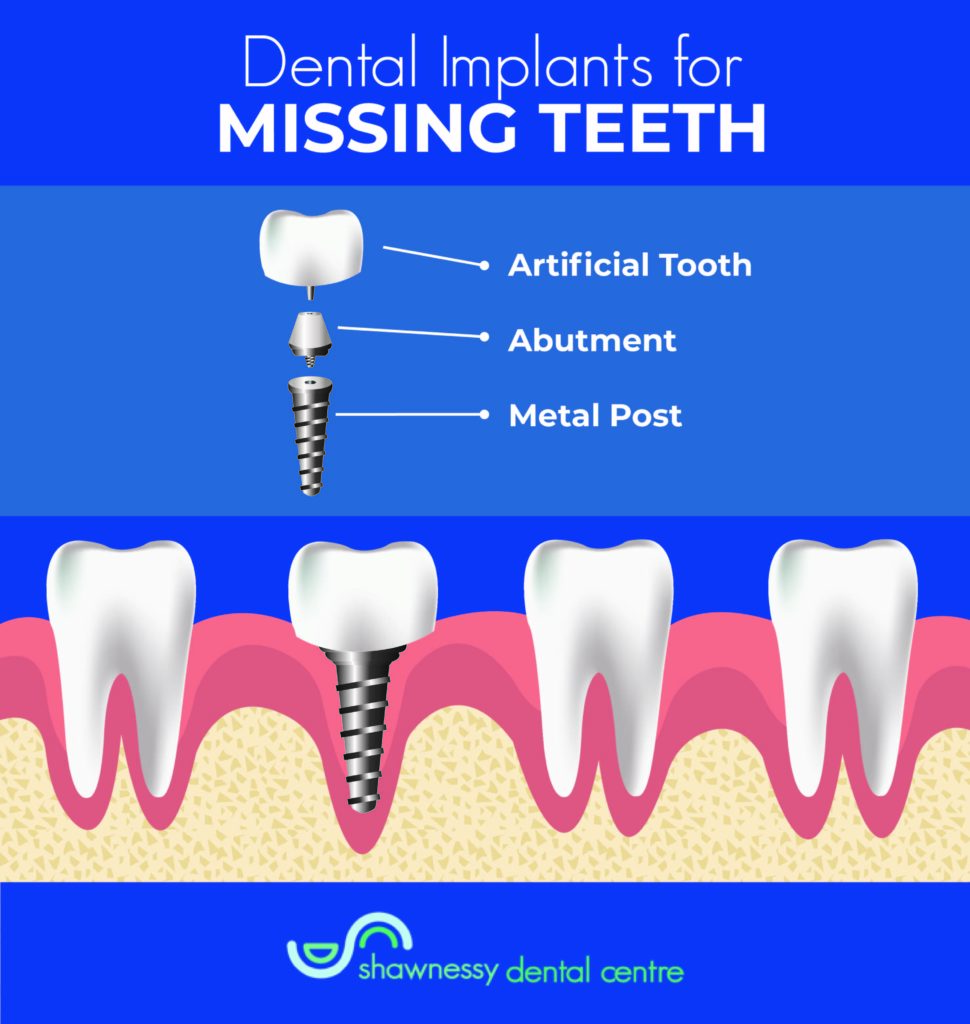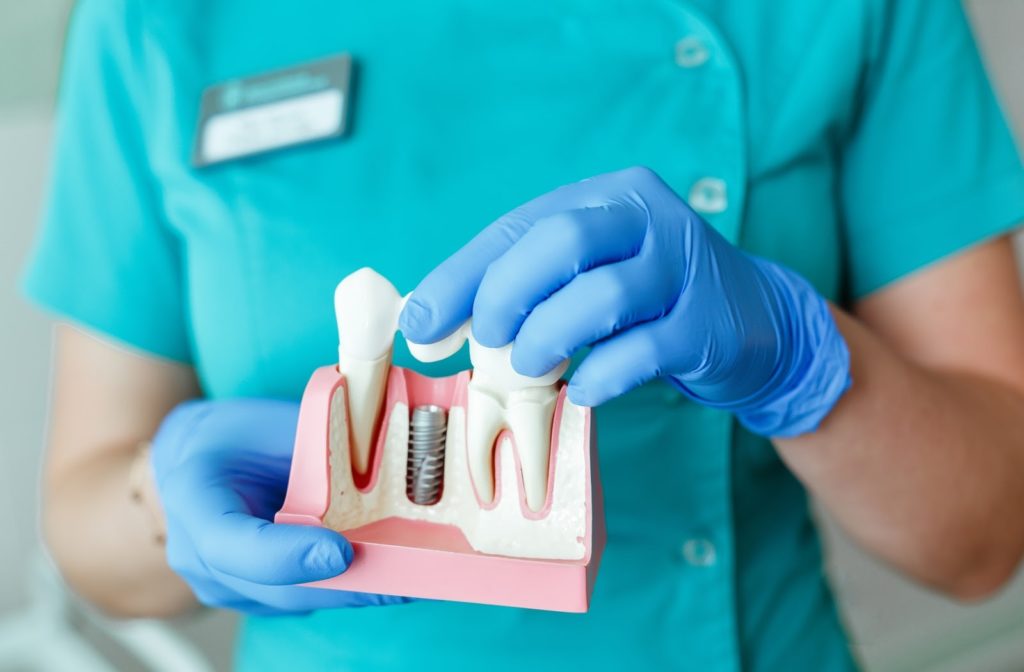Missing teeth can cause you to lose more than functionality; they can affect your confidence and self-esteem. There are many ways to replace missing teeth, and dental implants a great option.
Receiving your implants can be a several-month long process, so it’s important to understand how they’re installed. If you’re interested in dental implants, your dentist can discuss if they’re suitable for you.
What are Dental Implants?
A dental implant is a prosthetic replacement for missing teeth. They replace the roots with metal posts that hold an artificial tooth in place, and it looks and functions similarly to a natural tooth. Since the dental implants are surgically placed within the jawbone, there is solid support for your new teeth.

How Are Dental Implants Installed?
If you’re considering dental implants, your consultation will begin with an examination of your teeth and gums. X-rays are taken of your jaw, teeth, and head to determine if you’re a strong candidate. If you are, your surgery can be scheduled and may take place over one or two visits.
Placing the implant
Your dentist will begin by making a small incision in your gum tissue to insert a titanium implant into your jawbone. The tissue is stitched together and the implant will bond to your jawbone, attaching itself to your gum. Following surgery, it may take several months to heal before it can provide a solid foundation for your new artificial tooth.
Placing the abutment
The abutment is a small metal post that is used to install your artificial teeth. Your dentist will:
- Reopen your gums to expose the dental implant
- Attach the abutment
- Close your gum tissue
After the abutment is placed, the artificial tooth can be set. During the healing process you may experience:
- Minor bleeding
- Gum & facial swelling
- Gum & skin bruising
- Pain near the affected area
Your new artificial teeth
After the healing is complete, your dentist will have impressions made of your mouth and teeth which are used to craft your artificial teeth.
While there are clear benefits to dental implants, that doesn’t mean there are no risks involved. Before you make a final decision, learn about the potential risks associated with dental implants.
Risks of Dental Implants
There are various risks to be aware of when receiving dental implants. While they may not be common, it is important to fully understand the procedure before moving forward. Some risks include:
Infection
There is always a risk of infection that goes along with any type of surgery you may receive, so it’s important to diligently follow the aftercare instructions your doctor provides you. If you get an infection, the treatment plan will depend on the severity and location.
Damage or injury
Dental implants bring the risk of damage or injury to the surrounding areas of your mouth. This can include other teeth near the implant or blood vessels.
Nerve damage
There is a risk of nerve damage to your face. If your nerves are impacted by the surgery, you may experience numbness, pain, or a tingling feeling in a variety of areas including your:
- Natural teeth
- Gums
- Lip
- Chin
Sinus issues
Sinus problems are a small risk but may occur when dental implants are placed in the upper jaw as these implants can potentially protrude into your sinus cavities.
After your surgery, it’s essential to ensure you’re keeping your new teeth clean. Plaque and bacteria can build up and pose a risk of affecting your natural teeth.

Caring for your new teeth
Your new teeth may be artificial, but they look and act like natural teeth. This means they need to be kept clean through brushing and flossing. Your dentist will show you how to properly clean your implants and make sure they fit correctly.
If you’re unsure about receiving dental implants, there are alternatives to replacing any missing teeth.
Dental Implant Alternatives
If you have any missing teeth but are undecided if dental implants are right for you, there are two alternatives: fixed dental bridges and dentures.
Dental bridges
Dental bridges are useful if you’re missing several teeth. They are typically an artificial tooth fused between two crowns which help to hold it in place. Similar to dental implants, they need to be properly cared for. There are many different types of dental bridges, and your dentist can recommend the best option for you.
Dentures
Dentures are a well-known replacement for missing teeth and can be custom-fit to you. There are two types of dentures: partial and complete.
Partial dentures can be removed for cleaning and hook onto the nearby natural teeth. Complete dentures are typically used when there are no teeth left and can either be immediate or conventional.
The best way to decide which treatment is right for you is to speak with your dentist. They know how to identify the solutions best suited for you.
Meet with Your Dentist
If you’re interested in discussing your options for addressing any missing teeth, your dentist can help you make an informed decision. Book an appointment for help finding the best action plan for your needs.



